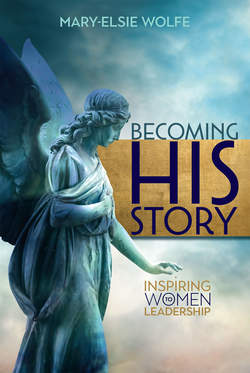Читать книгу Becoming His Story - Mary-Elsie Wolfe - Страница 10
На сайте Литреса книга снята с продажи.
ОглавлениеChapter 2
Worldview and
Cultural Lens
Jesus said,
“I will ask the Father, and He will give you another Helper, that He may be with you forever; that is the Spirit of truth, whom the world cannot receive, because it does not see Him or know Him, but you know Him because He abides with you and will be in you.” (John 14:16–17 NASB)
“When the Spirit of truth comes, he will guide you into all truth. He will not speak on his own but will tell you what he has heard. He will tell you about the future.” (John 16:13)
It would seem that any study on which we embark benefits by our recognition that we have formative, environmental, and cultural biases that might hinder our view. We are guided closer to truth when we start recognizing that our preconceived notions can hinder our ability to see clearly. Once we identify what those notions might be, we are better able to avoid looking for those details that only confirm our existing understanding. The goal is not to filter out that which may give clarity, even if it opposes our way of understanding. Certainly with political views, in cultural studies, and in personal relationships, it is a challenge to allow ourselves to be enlightened by new information that starts from an opposing or different view than ours. Our lens can be limited.
That is also the case when looking at the Bible. Imposing our cultural or formative or generational view on what we read can hinder our view. Therefore, we need to be stretched to step ourselves, as much as possible, into the biblical context and worldview in which we are reading. New Testament scholars, historians, and archaeologists help us do that. I look at the Gospel of John from that context.
Of the four Gospels (Matthew, Mark, Luke and John), the Gospel of John stands alone in many ways. It was written later—near the end of the first century. The other three evangelists wrote somewhere between AD 30 and 70.
Particular to the beloved disciple, as John describes himself, is what he highlights about how Jesus interacts with women.3 John breathes fresh spiritual depth about how Jesus interacts with women.
Whether you have never read the Gospel of John or have read it over many times, I invite you to read it with fresh eyes. Listen to what the Holy Spirit may be telling you as you imagine yourself hearing and watching Jesus. I challenge you to consider whatever preconceptions might hinder you from doing that and omit whatever filters will keep you from seeing clearly. It is challenging, but doable.
Let me share a personal story. I remember as a newlywed booking our first flight to Regina. My husband, Grant, and I had planned on visiting his mom for a week. He was in the midst of trying to meet a deadline, and I had been busily consumed with finishing work assignments before our departure. With our luggage in hand, we walked through the express ticket booth, pressing enter at cue for our destination. We got on the plane in comfort, feeling all was well with the world!
As our plane began to descend, the captain’s voice interrupted my movie, giving me the temperature for Saskatoon! “Saskatoon?” I smiled to myself. “He must be someone from Ontario mixing up the two major cities in Saskatchewan.” We were on our way to Regina, not Saskatoon. As we deplaned and walked toward the arrivals lounge, my husband, who had lived in both Regina and Saskatoon, commented, “They must be making renovations to the Regina airport. This is quite nice.” We walked a bit farther before he added, this time with a tone of suspicion and almost accusation, “This airport looks distinctly like the Saskatoon airport!” Suddenly, he stopped at one of the advertisement posters encased in glass and said very soberly, “We are in Saskatoon!” I paused with concern, feeling pretty stupid since I was the one who had booked the tickets!
We had indeed landed in Saskatoon—not Regina! But until that very moment, we were reading all the circumstances around us through the eyes of our preconceived notions. I thought that I had booked our tickets for Regina and had no reason to think otherwise. While many signs could have revealed the truth about our destination, I was blinded by my preconceptions. Truth was veiled and distorted. Even though everything around me indicated we were not in the Saskatoon airport, I was oblivious—blind to what was right in front of me. Unless we are aware of what blinds our view, we will miss the full benefit of a particular experience or insight.
Let the Holy Spirit, who leads you into all truth, help you become aware of any preconceived notions that may prevent you from seeing from God’s eyes. Whether you are a man or woman seeking to inspire others, or for that matter to be inspired yourself, take a moment to ask the Holy Spirit to lead you into all truth. Invite the Holy Spirit into your story.
3 While some scholars have suggested that the book was authored by disciples of John, I follow the traditional view of its author being John.
